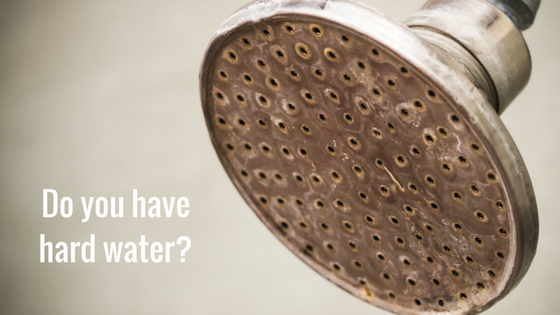Hard water is an issue for 85% of the households in the United States. It can create a number of issues, some as minor stiff, scratchy towels, and others as major as malfunctioning plumbing or permanently bad hair. It is characterized by high mineral content, can affect various aspects of your household. Recognizing the signs of hard water is crucial for addressing potential issues and ensuring the longevity of your appliances and plumbing. Let’s explore the top ten signs that indicate you have hard water and discuss the implications it can have on your home.
Soap Scum Buildup
One of the most visible signs of hard water is the stubborn white residue left behind after using soap. It contains high levels of minerals like calcium and magnesium, which react with soap to form soap scum. This scum can accumulate on bathroom surfaces, shower doors, and fixtures, making it challenging to keep your bathroom clean.
Spots on Glassware and Dishes
If your glassware and dishes emerge from the dishwasher with spots or a cloudy film, hard water may be the culprit. The minerals in it can interfere with the effectiveness of dishwasher detergent, leaving behind residue on your dishes. Over time, this can impact the clarity and appearance of glassware.
Dry and Itchy Skin
The same soap scum that builds up on shower walls due to hard water can also build up on your skin. The minerals in hard water can strip away natural oils, leaving your skin feeling dry, tight, and itchy after bathing. If you find yourself reaching for moisturizer more frequently or experiencing skin irritation, it may be to blame.
Stiff and Faded Laundry
Laundry washed in hard water can appear faded and feel stiff. The minerals in it can interact with laundry detergents, making it challenging for them to properly dissolve. As a result, clothes may not rinse thoroughly, leaving behind residue that affects the fabric’s texture and color.
Reduced Water Heater Efficiency
Mineral deposits from hard water can accumulate in your water heater, reducing its efficiency over time. This buildup creates an insulating layer, making it harder for the heating element to transfer heat to the water. As a result, your water heater may consume more energy to reach the desired temperature, leading to increased energy bills.
Clogged Pipes and Reduced Water Flow
The minerals in hard water can accumulate inside pipes and fixtures, leading to clogs and reduced water flow. Over time, this buildup can restrict water passages, causing plumbing issues and decreasing the overall efficiency of your water supply system. If you’ve noticed a decrease in water pressure, it may be the cause.
Scale Buildup on Appliances
It leaves behind scale deposits on appliances that use water, such as coffee makers, dishwashers, and washing machines. These deposits can accumulate on heating elements and inside pipes, affecting the performance and longevity of your appliances. Regular descaling may be necessary to maintain their efficiency.
Frequent Plumbing Repairs
The mineral deposits from hard water can lead to increased wear and tear on your plumbing system. If you find yourself facing frequent plumbing repairs, such as leaks, clogs, or damaged fixtures, it may be contributing to these issues. Addressing the water hardness can help prolong the life of your plumbing infrastructure.
Stained Fixtures and Appliances
It stains, often referred to as limescale or mineral deposits, can mar the appearance of fixtures, faucets, and appliances. These stains are particularly common in areas with high water usage, such as the kitchen and bathroom. Regular cleaning may be required to keep these surfaces looking their best.
Difficulty Lathering Shampoo and Soap
When washing your hair or hands, you may notice that shampoo and soap do not lather as easily in it. The minerals in it react with the cleansing agents in these products, hindering their ability to create a rich lather. This can lead to the use of larger amounts of shampoo and soap to achieve the desired cleanliness.
Identifying the signs is the first step toward addressing the challenges it presents. From soap scum and cloudy glassware to dry skin and reduced appliance efficiency, the impact can be widespread. If you recognize these signs in your home, consider investing in a water softener or other appropriate solutions to mitigate the effects. But don’t worry – Peacock Water has got you covered! Recognizing the signs of hard water is the first step, and Peacock Water offers effective solutions to make your water-related worries disappear.
From reducing soap scum to keeping your dishes spotless, Peacock Water’s water softeners work wonders. Imagine saying goodbye to stiff laundry, clogged pipes, and stained fixtures. With Peacock Water, you can enjoy the benefits of softer, cleaner water throughout your home.
Say farewell to the hassle of frequent plumbing repairs and increased energy bills caused by hard water. By choosing Peacock Water, you’re investing in top-notch water treatment solutions that not only tackle the signs of hard water but also improve the efficiency and lifespan of your appliances. Taking proactive measures can not only improve the performance and longevity of your appliances and plumbing but also enhance your overall water quality and daily living experience.






